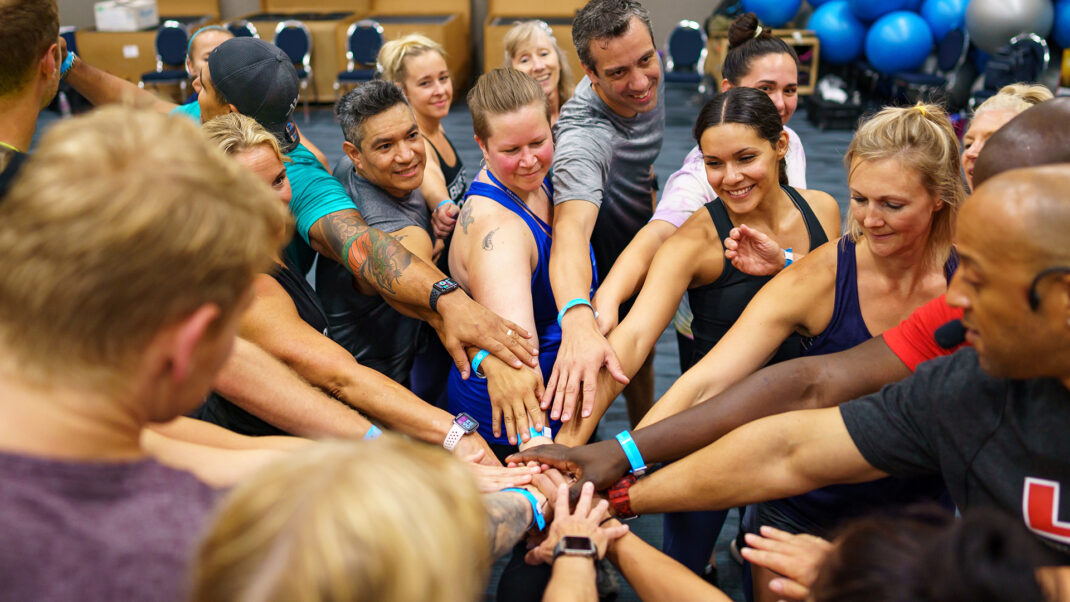Training a Competitive Equestrian
Ajia Cherry's unique experiences gave her the know-how to help her client excel at her sport.

client: Rikki | personal trainer:Ajia Cherry, founder of Functional Innovative Training | location: Fairport, New York
Personal struggle. When Ajia Cherry, personal trainer and founder of Functional Innovative Training, was 4 years old, she was diagnosed with neuroblastoma, a type of pediatric cancer that often starts in the adrenal glands. Her treatments—surgical and nonsurgical—were difficult, but successful. The cancer was eradicated, but there are typically side effects, like bone disintegration in adulthood. Decades later, however, when she returned to the doctor for a long-term follow-up, her bones were healthy and strong. Her doctor, surprised, asked about what she’d done; all she could think of was that she exercised regularly. It was then that she realized the power of fitness and decided to become a personal trainer.
Sport-specific training. Alongside regular exercise, Cherry is also an accomplished equestrian who regularly competes in dressage, a sport in which a horse performs special movements in response to signals from the rider. Her experience in both dressage and personal training led her to a fulfilling new client relationship.
“Rikki and I met through the Genesee Valley Riding and Driving Club; we are both board members and active competitors,” says Cherry. “She had previously worked with a personal trainer and was looking to compete at a higher dressage level. With my equestrian background, we seemed like a good fit.”
During their initial meeting, the two discussed Rikki’s riding goals and how a personal training program could better prepare her for the unique demands of dressage.
“Her primary training goals were advanced core control,” says Cherry. “Core strength is the keystone of upper-level dressage.”
Better balance. Cherry’s first steps were to determine her new client’s physical capacity in relation to her sport.
“I make sure to do flexibility and muscle-length testing and movement assessments. I always do full range of motion/movement screening assessments. I have learned from a lineage of people like Dr. Michael Mantell, Chris McGrath and Jonathan Ross. I firmly believe that we must establish an appropriate baseline before we move forward to designing a program.”
Data from Cherry’s assessments were not surprising to her, she says. They revealed structural imbalances that are common among equestrians—many of which she has experienced herself.
“I can relate to other riders, especially woman, in all aspects—from pelvic-floor pain to hamstring tightness to lower-back discomfort to constantly trying to improve cardio and core control,” she says.
These characteristics became the focus of Rikki’s training program.
Obstacles. Rikki was more than willing to follow Cherry’s plan; she knew that doing so would only improve her performance. However, a rigorous travel and competition schedule required the team to get creative about the training.
“We basically laid everything out and analyzed what we had to work with,” Cherry says. “If Rikki was on the go, we would simply utilize a 15-minutes-or-less, no-equipment-needed workout to keep her on track. She does travel a lot for competitions and family matters; however, I’ve been virtual coaching for years, so it’s easy to keep up with my clients and assist them from a distance.”
Progress and inspiration. So far, the training has produced significant success.
“I am constantly seeing progress. Each one-on-one session is a great opportunity for me to watch Rikki’s range of motion and assess her progress. The fact that she is continually advancing in her sport speaks of the improvements.”
Cherry believes that her own experience with dressage plays a significant role in how she’s able to help her client succeed. She encourages other fitness professionals to follow a similar path.
“Follow your passion. Do what you need to do to empower yourself because only then will you fully be able to empower someone else.”
Cherry adds that her client has been a huge inspiration to her personally and professionally.
“There are many ways working with Rikki helped me grow as a trainer,” she says. “She competes at a level that I won’t see for many years. This has forced me to dive even further into the future of not only my business as an American Council on Exercise health coach and personal fitness trainer, but also as a competitive rider.”
Ryan Halvorson
Ryan Halvorson is an award-winning writer and editor, and IDEA's director of event programming.






